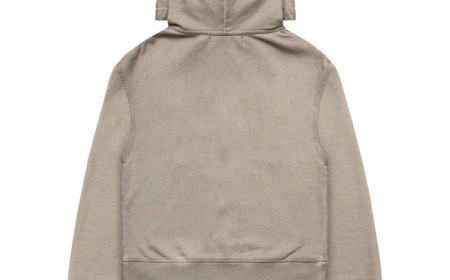Capitalism is an uncaring system. That’s not so much a judgment as a statement of fact. A system that insists on profit as its main goal cannot make room for empathy, for decisions that would value care over anything else, let alone the bottomline. Over its past two seasons, Industry has organized itself around questions about of what kinds of people late-stage capitalism values and enshrines. The HBO phenom is littered with stories of people who pushed themselves (and others) too hard for the sake of money and, from the looks of it, season three is picking those themes right back up with an emphasis on ESG. (That’s shorthand for investments that prioritize environmental, social, and governance issues.) Can investments be ethical? Responsible? Impactful? Can the market really bend toward social, environmental, or governmental justice? These aren’t abstract questions. In Industry, these are embodied queries that drive the day to day of its central characters, who grapple with how to be a good person when the system they’re beholden to requires them to be good capitalists.But before we get bogged down in philosophical quandaries, let us travel to a moneyed yacht where Yasmin (Marisa Abela) finds herself irked by the lavish lifestyle around her—especially when, in an attempt to escape the bacchanalia, she stumbled down to her room where she finds her father orally pleasuring a woman, his erection on full display. And if that wasn’t traumatic enough, we soon learn said yacht excursion was the last anyone saw of Mr. Hanani, who absconded, leaving a bevy of lawsuits and disgruntled investors behind—and Yas, who must cope with the sensationalist British press labeling her as nothing more than a partying “Embezzler Heiress.” Such bad press follows her to Pierpoint, where it’s clear it may start affecting her standing. Thankfully, Kenny (Conor MacNeill), still sober and making amends, is standing by her on the floor. And boy, is the floor busy! Pierpoint is readying a client of theirs, Lumi—a leader in green energy—to go public. Headed by Henry (actually, make that Sir Henry), played by Kit Harington, Lumi is being primed as the kind of, as one Pierpoint exec puts it, “woke investment,” a “greenwashing” of sorts that’s designed to keep the firm looking good while potentially not yielding the kind of returns they so cravenly and constantly desire.Such words are said in the privacy of a board meeting where Eric (Ken Leung) has finally been upped to partner. It’s a moment a long time coming, so of course those around him can’t help but make jabs at him, reminding him in not so many words that he’s an outlier in that room. Though, given that he immediately puts down the sole female exec at the meeting while out of earshot, you realize everyone at Pierpoint, and perhaps in all of these financial institutions, see themselves as disposable and therefore in constant competition with those who don’t look like everyone else. This is the burden of tokenism, which in turn makes folks like Eric work all the harder—and be all the crueler when trying to get ahead.Yet, when he’s encouraged to let go of Yas given her high profile, he waffles. He’s in the middle of a divorce and a bit adrift (Kenny was incredibly helpful when he hit rock bottom), so he’s left with a kind of lose-lose situation. Is this what caring about your employees feels like? It's odd, really, especially given how it all shook out with Harper (Myha’la) last season.But that’s all preamble to the key crisis of the episode: A major Lumi investor is eager to dump half his shares ahead of the company going public, voicing in a meeting with Henry, Robert (Harry Lawtey), and Yas on the line concerns he has about Lumi’s books and their debt. It’s the kind of scene that would lose me in any other show, awash as it is with jargon the show seems uninterested in explaining to the audience. But the details don’t matter. The stakes are clear: Yas speaks up, regurgitating the talking points about how Lumi is a sound investment at the time, impressing Henry, who basically tells the investor to just sell back all his shares at an agreed-upon price. Let the market decide. It's a risky bet, of course. But when you walk around looking like Kit Harington, confidence comes with the territory. [caption id="attachment_1854881080" align="alignnone" width="854"] Myha’la (Photo: Simon Ridgway/HBO)[/caption]This all puts more pressure on making the public trading all the more consequential. What if that investor was a canary in the coalmine for Lumi? “This business is people making money on a hill of dead yellow birds,” Eric tells Yas. And so, by the time Henry calls her cell later that night and invites her over to talk some more (she’s made an impression), she’s rightfully wary. Will she get fired? There's only one way to find out, which she does when she’s welcomed into his lavish, very old-moneyed world to see him playing handball with two men who key us into who Henry is: a rich, privileged kid who may well be running Lumi as a kind of pet project. (As one of them tells Yas, Henry is as dangerously handsome and as dangerously stupid—much as her father once was.)If you were wondering where Harper was in all of this, she’s bounced back (sort of) and landed in Anna Gearing’s (Elena Saurel) office. Not as a trader but as an assistant to an investor who does seem interested in impactful investments (much to the chagrin of her best trader, Sarah Goldberg’s ambitious Petra). True to Harper, she’s eager to get back into trading and tries, rather unsuccessfully, to strike up conversations with both Anna and Petra about Lumi and the state of ESG investments (“a utopian opiate for idiots who believe in a better world, whatever the fuck that means,” as she puts it). As ever, she’s ruthless but has little to do with that sentiment in this new role.As Pierpoint tries to ready for Lumi’s public bid, Yas is still in full frayed nerves mode. As she visits with a lawyer friend of hers, she runs into Eric, who, throwing caution to the wind (and saying goodbye to the date he was with, as he’s going through a divorce now), decides to party all night with Yas and her friend. And yes, Eric and Yas bond in a coke-fueled moment of tender intimacy that allows them to avoid awkwardness and strengthens their bond.—and makes it all the harder to fire her, as he’s been instructed to do. (He has to show he’s ruthless, that he’s back, so someone has to go.) Which brings us to the morning of the Lumi trading. Rob, who’s still seeing Nicole (“You’re just a useless little whore,” she yells at him while they fuck), has awoken next to her lifeless body. The two fell asleep outside (in matching pj's!), and she’s now dead. Which rankles the young trader, who likely should’ve just stayed in bed with his girlfriend. He calls Yas, who, when he doesn’t offer specifics, gives him a pat pep talk to get him to get on with his day. By the time Eric arrives on the floor reeking of booze and drugs (he ended up hooking up with Yas’ friend), he’s less upset about what this episode reveals about him at the time and more about what this telegraphs to others. Those others he’s forced to care for: He’s got Kenny, who cared for him; Yas, whom he opened up to the night before; and Rob, who’s catatonic and crying right in front of him.And so, curdling everything about himself he may at one point have enjoyed, Eric does two things that feel both in character and yet wholly repugnant: He fires Kenny and then threatens to bring up all the harassment stuff if Kenny get litigious. And he counsels Rob and tells him, basically, to man up. (His words are “Are you going to stop being a pussy?” actually.) “Today is the only day that matters,” he warns him, snapping him out of it all. It’s a spectacular return to form for Eric and a stark reminder of the ways this system rewards uncaring assholes. But hey, it at least gets Rob by Henry’s side just before he rings the bell at the stock market. That is, until a blackout hits London. How fitting for an energy company. Stray observations • “That was me being humorous.” As someone who’s never watched Game Of Thrones (yes, yes, I know…I’ll catch it soon, I promise), I was glad to find Kit Harington to be such a playful performer. I'm also glad the powers that be thought it necessary to offer us a sweaty, shirtless Harrington from the get-go. (Those back muscles of his are ridiculous. So thank you, Industry!) • Speaking of Henry, I love that he’s referred to as “Prince Hal” by his family. Really gives you a sense they think he’s as young and clueless as that Shakespearean character. • All I wanted to do was reach out across the screen and tell Harper to go ahead and watch Decision To Leave on MUBI! It’s divine. • “I am a man, and I am relentless” is a bleak-AF mantra and a fascinating one to put to the test when the likes of Yas or Harper (or Nicole, even) have to navigate the world that exalts it. (It’s only slightly better than “Always Be Securing That Bag Bitch” though.) • How sweet is it that Yas thinks Harper is a good person? “I don’t think she is,” Eric counters.






















